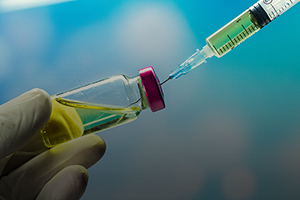One-of-a-Kind Drug Therapy

A new paradigm for creating personalized drugs could revolutionize how we treat rare genetic conditions. In one case, a young girl named Mila was suffering from an inherited disorder, called Batten disease, in which the proteins that carry away cellular waste products fail to function properly. This results in eventual cell death that leads to seizures, cognitive impairment and blindness.
But doctors were able to identify a particular genetic sequence, called a transposon (also known as a jumping gene) that can interject itself at various locations in the DNA chain. In Mila’s case, the position of the transposon was preventing her cells from replicating properly. So they created a customized piece of RNA that could bind to the genes like a molecular bandage (also known as an oligo). Dubbed Milasen, the new drug enabled the cells to reproduce normally and stopped the build-up of cellular waste. Mila’s seizure activity has been reduced and, with help, she is now able to stand and walk.
It took less than a year to develop Milasen, and now that the process is established, others will undoubtedly follow, as oligos are relatively easy to create. The technique is applicable to medicines that fix erroneous messages (such as Batten disease) as well as others which might replace or edit genes, offering hope where there once was none.
For information: Timothy Yu, Boston Children’s Hospital, 300 Longwood Avenue, Boston, MA 02115; phone: 617-355-6000; Web site: http://www.childrenshospital.org/ or http://www.childrenshospital.org/research/batten Mila’s Miracle Foundation, P.O. Box 19675, Boulder, CO 80308; Web site: https://www.milasmiracle.org/